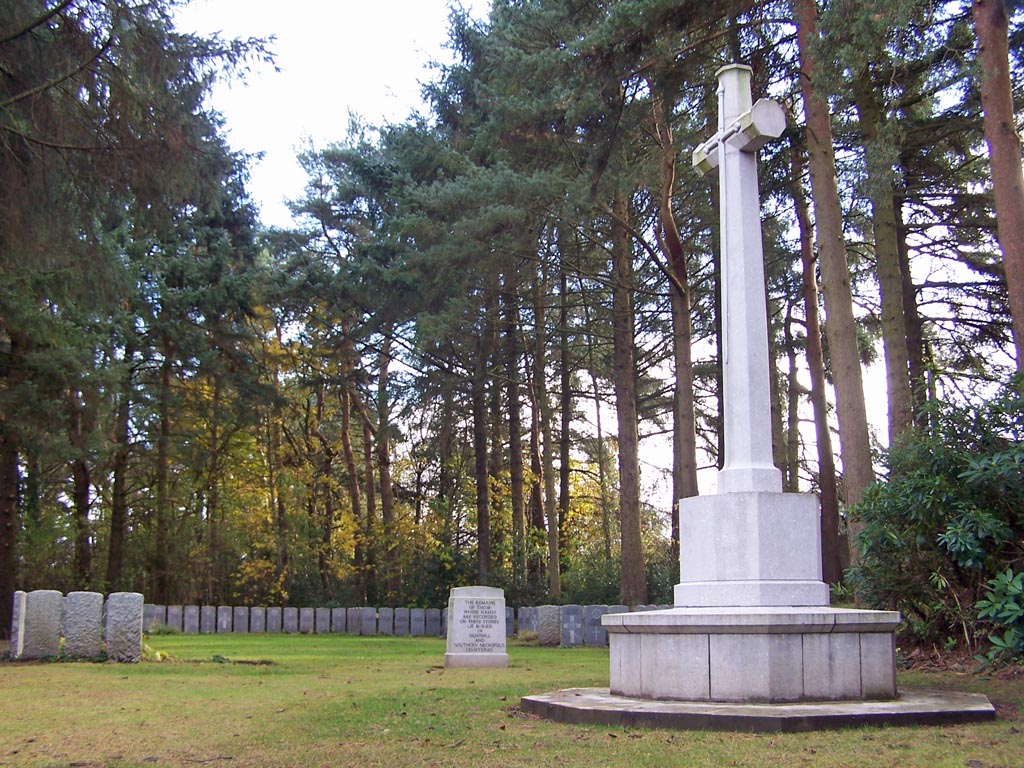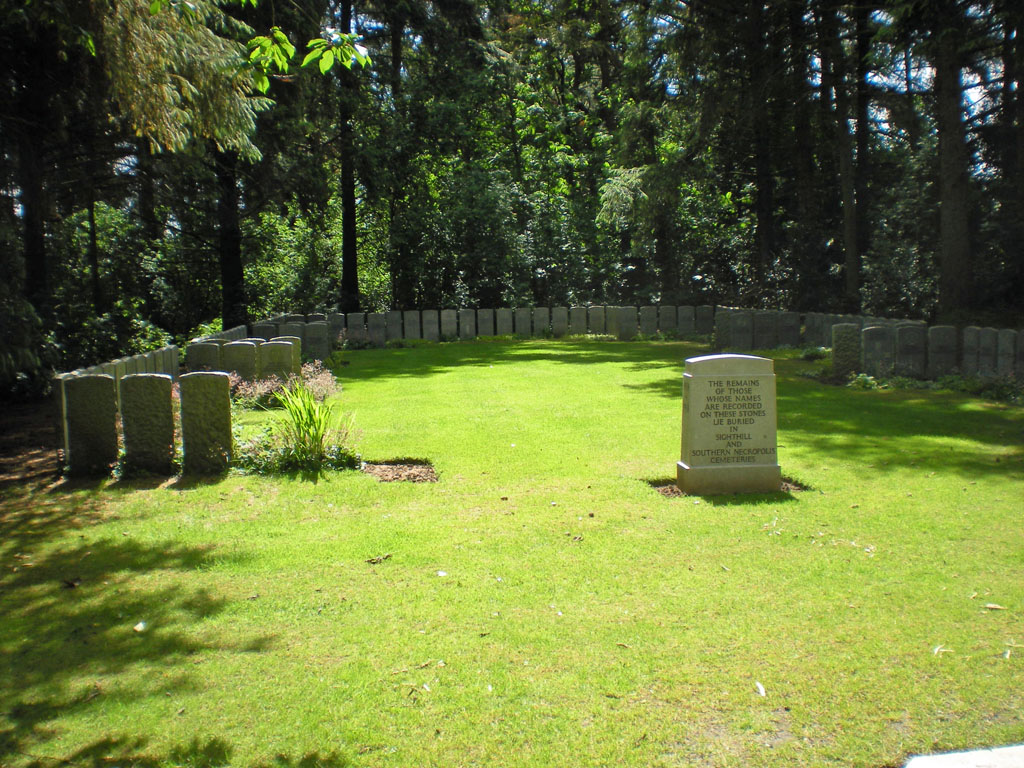Glasgow (Eastwood) New Cemetery
- Country United Kingdom
- Total identified casualties 118 Find these casualties
- Region Glasgow
- Identified casualties from First & Second World War
- GPS Coordinates Latitude: 55.8108, Longitude: -4.31239
Location information
Glasgow (Eastwood) New Cemetery is a large cemetery in the south part of Glasgow, on Thornliebank Road. Please note, Glasgow (Eastwood) Old Cemetery is also on this road (the two cemeteries are on opposite sides of the road, approximately 100 metres apart).
By road: Take the motorway M77 exiting at junction 3 onto the A727 Nitshill Road, in the direction of East Kilbride. At the first major roundabout take the first exit onto the B769 Spiersbridge Road, direction north, which leads onto Main Street and Thornliebank Road. The cemetery entrance is on the right hand side, just before Thornliebank Railway Station.
By public transport: The easiest way to the cemetery is to use the Glasgow rail system from Glasgow Central Station travelling towards East Kilbride. Exit at Thornliebank Station and head south. The cemetery is alongside the railway line and the entrance is only a short walk from the station.
History information
During the two world wars, the United Kingdom became an island fortress used for training troops and launching land, sea and air operations around the globe. There are more than 170,000 Commonwealth war graves in the United Kingdom, many being those of servicemen and women killed on active service, or who later succumbed to wounds. Others died in training accidents, or because of sickness or disease. The graves, many of them privately owned and marked by private memorials, will be found in more than 12,000 cemeteries and churchyards.
Glasgow was one of the ports of embarkation for the British Expeditionary Force in 1914 and several military hospitals opened in the city during the First World War, including the 3rd and 4th Scottish General (1,200 beds each), and the Merryflats War Hospital (500 beds). Battalions of a number of Scottish regiments had their headquarters at Glasgow during both wars, most notably the Highland Light Infantry. The Clydeside shipyards were targeted by German bombers during the Blitz, and Glasgow suffered a particularly ferocious attack on the night of 13/14 March 1941 when many civilians and servicemen were killed.
Glasgow (Eastwood) New Cemetery contains 22 scattered burials of the First World War and 96 from the Second World War.



